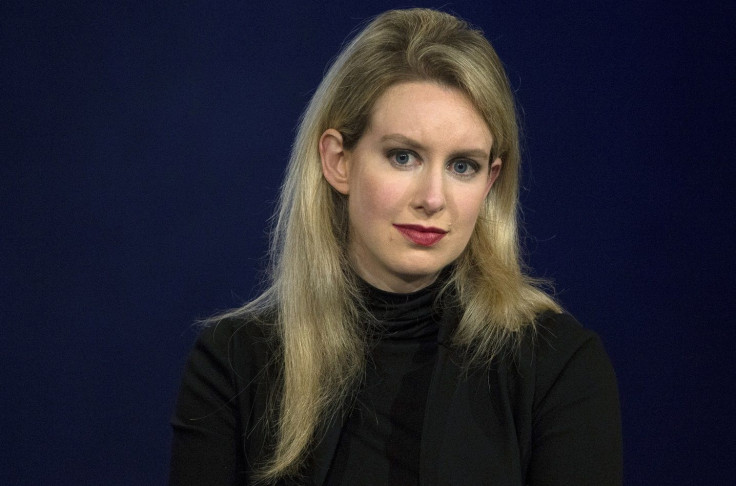Theranos founder Elizabeth Holmes indicted, facing decades in prison

Elizabeth Holmes was indicted on criminal charges that could land her decades in prison on Friday. The disgraced Theranos founder and CEO and the company’s former president, Ramesh “Sunny” Balwani, are alleged to have operated multimillion-dollar wire fraud schemes.
They are charged with two counts of conspiracy to commit wire fraud and nine counts of wire fraud, which stem from the allegations that they engaged in a scheme to defraud investors and another separate scheme to defraud doctors and patients. These schemes involved efforts to promote Theranos, a private healthcare and life sciences company that claimed revolutionary medical laboratory testing through a drop of blood. Holmes and Balwani both pleaded not guilty.
The indictment states that the defendants used a combination of direct communications, marketing materials, statements to the media, financial statements, models and other information to defraud investors. Holmes and Balwani claimed that the company developed a revolutionary and proprietary analyser they referred to by various names. They claimed that the analyser could perform a full range of clinical tests just by using a drop of blood and that could produce results more accurately and reliable than by conventional methods.
They allegedly knew that that all their claims were false. The analyser in truth had accuracy and reliability problems, slower than other devices, performed just a limited number of tests, and could not compete with conventional machines. But despite knowing all these, the duo defrauded doctors and patients by claiming the opposite.
Their alleged misrepresentations and omissions about the accuracy of the Theranos’ technology caused hundreds of patients to pay. The defendants also delivered to doctors and patients blood results that were inaccurate, unreliable and improperly validated.
As for defrauding investors, Holmes and Balwani allegedly made numerous misrepresentations to potential investors about Theranos’ financial condition and its future prospects. They represented to investors that the company conducted its patients’ tests using Theranos-manufactured analysers when they knew that Theranos purchased and used for patient-testing third party and commercially available analysers.
They also claimed that the company would generate over US$100 billion (AU$134 billion) and revenues and break even in 2014, as well as approximately US$1 billion (1.34 billion) in revenues in 2015. However, the defendants allegedly knew that the company would only generate negligible or modest revenues.
According to the indictment, Holmes and Balwani told investors that Theranos had a profitable business relationship with the US Department of Defense, with the Theranos technology having been deployed to the battlefield. The company had limited revenue from military contracts and that its technolog was not deployed in the battlefield. The company’s retail rollout in pharmacy store chain Walgreens had stalled because of several issues, but Holmes and Balwani apparently claimed to investors that they would increase their number of rollout.
If convicted, they face fines of US$250,000 (AU$335,850) per count plus restitution of over US$100 million. They also face decades in prison. Holmes’ attorney had no comment on the case. Balwani’s lawyer, Jeffrey Coopersmith, meanwhile, said they would fight the charges.
“Mr Balwani believed so much in Theranos that over the years his own mother and other family members used the company’s lab to enable them to make informed decisions about important healthcare mattes,” he said in a statement. “Mr Balwani looks forward to trial because he did not defraud anyone, and it will be an honour to defend him vigorously.”
Holmes was once reported to have a net worth of US$4.5 billion (AU$6.05 billion) in 2015 before Theranos was hit by a class-action fraud lawsuit.





















